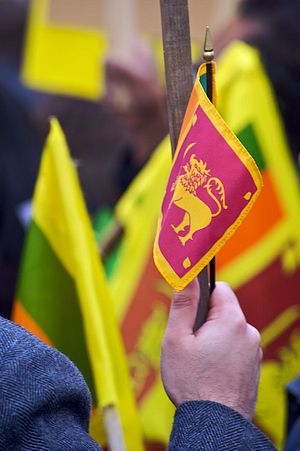The plight of Sri Lanka’s Tamil political prisoners is an issue that won’t go away – because the Sri Lankan government, a coalition led by President Maithripala Sirisena and Prime Minister Ranil Wickremesinghe, has failed to adequately address the matter. In recent times, there have been protests, labor strikes, and hunger strikes in the country; that’s nothing new.
Moreover, R. Sampanthan, leader of the Tamil National Alliance (TNA), recently urged Sirisena to release these individuals in a widely circulated letter.
Since Sirisena became president in January 2015, some of the remaining Tamil detainees have been released, yet many are still being held – more than eight years after the conclusion of the island nation’s civil war. On Friday, a senior human rights lawyer in Colombo told me that there are between 120 and 130 Tamil political prisoners.
Writing for Lawfare last year, I argued that releasing these individuals was a necessary step in Sri Lanka’s transitional justice process, purportedly a major part of the government’s reform program:
Though politically controversial, providing a complete list of Tamil political prisoners (including the location where each individual is being held) and immediately releasing most of them is precisely the type of confidence-building measure that the government could use to establish its transitional justice bona fides. The longer Colombo prevaricates on this issue, the easier it is to believe that war-related reform in Sri Lanka may be on the rocks.
Sirisena’s electoral victory ushered in a wave of unrealistic expectations. For those who still hold high hopes about Sri Lanka’s current president and the road to deeper reform, now is an opportune time to recalibrate expectations.
Colombo has made, at best, little progress on core Tamil issues including militarization, land and transitional justice, among others. More generally, we’ve seen over two years of coalition governance, but virtually all the government’s reform agenda has been in trouble for some time.
Local and provincial elections are expected next year. So don’t hold your breath for major positive changes in the coming months.

































